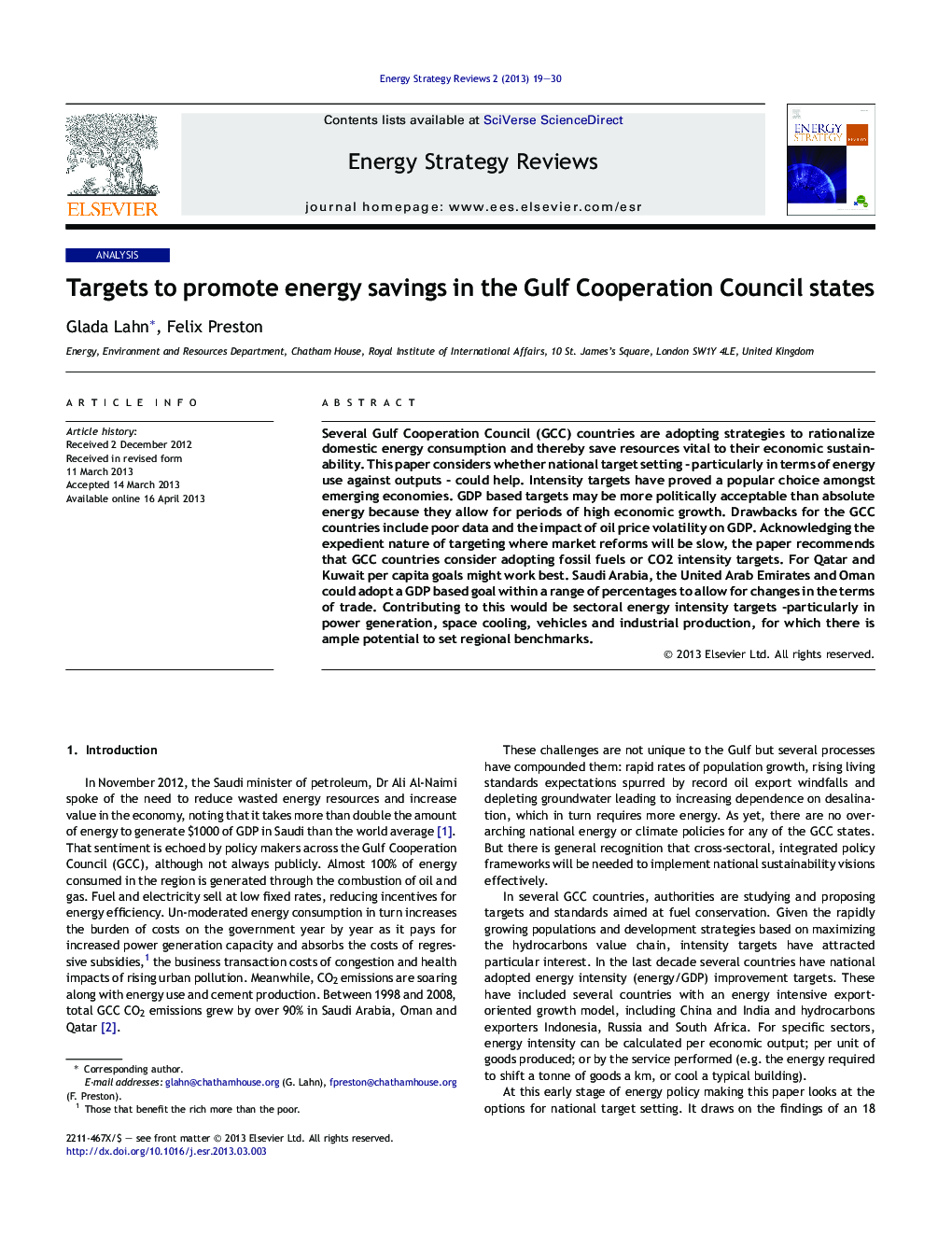| کد مقاله | کد نشریه | سال انتشار | مقاله انگلیسی | نسخه تمام متن |
|---|---|---|---|---|
| 1029886 | 942751 | 2013 | 12 صفحه PDF | دانلود رایگان |

• High energy intensities in Gulf Cooperation Council (GCC) countries indicate wasted resources.
• Overarching targets set at the national level would help sustain political momentum.
• Aggregate energy/GDP measures require adjustment for oil and gas exporting countries.
• CO2 based targets will be most appropriate for countries planning more clean energy.
• Delegation of authority and feed back mechanisms will be key to making targets work.
Several Gulf Cooperation Council (GCC) countries are adopting strategies to rationalize domestic energy consumption and thereby save resources vital to their economic sustainability. This paper considers whether national target setting - particularly in terms of energy use against outputs - could help. Intensity targets have proved a popular choice amongst emerging economies. GDP based targets may be more politically acceptable than absolute energy because they allow for periods of high economic growth. Drawbacks for the GCC countries include poor data and the impact of oil price volatility on GDP. Acknowledging the expedient nature of targeting where market reforms will be slow, the paper recommends that GCC countries consider adopting fossil fuels or CO2 intensity targets. For Qatar and Kuwait per capita goals might work best. Saudi Arabia, the United Arab Emirates and Oman could adopt a GDP based goal within a range of percentages to allow for changes in the terms of trade. Contributing to this would be sectoral energy intensity targets -particularly in power generation, space cooling, vehicles and industrial production, for which there is ample potential to set regional benchmarks.
Journal: Energy Strategy Reviews - Volume 2, Issue 1, June 2013, Pages 19–30